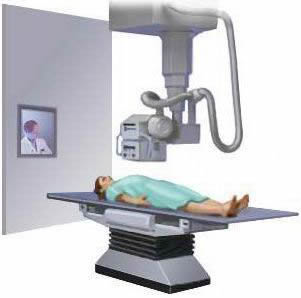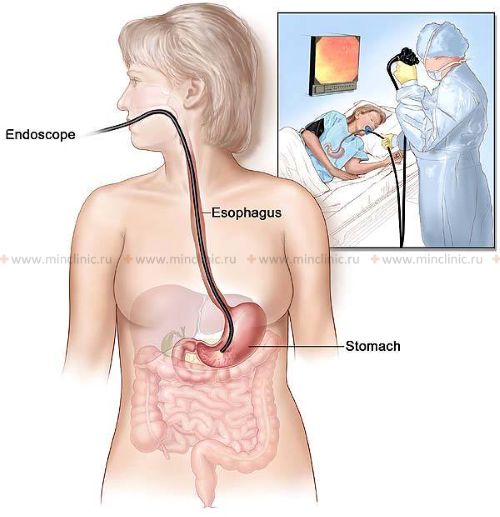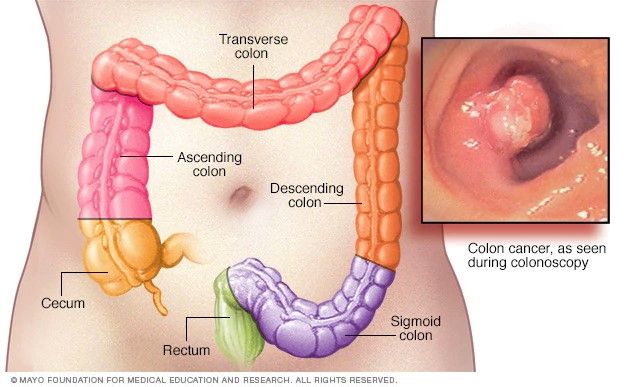Rules for the preparation of diagnostic procedures
- General Guidance for Diagnostic Procedure Preparation
- Preparing for Radiography of the Stomach (Upper GI Series)
- Preparing for Neurophysiological Studies (REG, EEG, ECHO-EG)
- Preparing for Contrast-Enhanced Pelvic CT Scan
- Preparing Children for an MRI Procedure with Sedation
- Preparing for Bowel Cleansing Procedures (General)
- Preparing for Upper Gastrointestinal Endoscopy (Gastroscopy)
- Preparing for Cardiac Stress Tests (Bicycle Ergometry/Treadmill Test)
- Preparing for Ultrasound of Pelvic Organs, Prostate, and Bladder
- Preparing for Irrigoscopy (Barium Enema) with "Fortrans"
- Preparing for an Optometrist/Ophthalmologist Appointment
- Key Patient Preparation Reminders (Table)
- References
Rules for the Preparation of Diagnostic Procedures
Proper preparation is essential for ensuring the accuracy and effectiveness of various medical diagnostic procedures. Adhering to specific instructions provided by your doctor or the diagnostic facility can significantly impact the quality of the results and, in some cases, your comfort and safety during the test. This guide outlines general preparation rules for several common diagnostic studies.
Always follow the specific instructions given to you by your referring physician or the clinic where your procedure is scheduled, as individual circumstances may require modifications to these general guidelines.
Preparing for Radiography of the Stomach (Upper GI Series)
Radiography of the stomach, often part of an Upper Gastrointestinal (GI) Series, typically involves drinking a contrast medium (usually barium) to help visualize the esophagus, stomach, and duodenum on X-rays.
- Evening Before the Study: Have your last meal (dinner) no later than 9:00 PM. Avoid heavy or fatty foods.
- Day of the Study:
- Do not eat breakfast (remain NPO - nothing by mouth).
- Do not take any oral medications unless specifically instructed otherwise by your doctor.
- Inform the radiology staff of any allergies, especially to contrast media, or if you might be pregnant.
The approximate duration for a stomach radiography procedure is typically 30 minutes, but this can vary.
Preparing for Neurophysiological Studies (REG, EEG, ECHO-EG)
Neurophysiological studies such as Rheoencephalography (REG), Electroencephalography (EEG), and Echoencephalography (ECHO-EG) assess brain electrical activity, blood flow, or structural characteristics.
- Abstain from Smoking: Do not smoke for at least 2 hours before the study.
- Avoid Alcohol: Do not consume alcoholic beverages the day before the study.
- Hair Preparation: For EEG and sometimes REG, hair must be clean and free of any products like varnish, gel, hairspray, or oils. It's advisable to wash your hair the night before or morning of the study. Bring a comb with you.
- Medications: Inform the technician or doctor about any medications you are taking, as some can affect test results. Do not stop any prescribed medication unless specifically instructed by your doctor.
- Rest: Ensure you are well-rested, especially for an EEG, as sleep deprivation can sometimes be part of the testing protocol (if a sleep EEG is ordered).
Approximate duration of these studies:
- REG (Rheoencephalography): 10-15 minutes
- EEG (Electroencephalography): 20-60 minutes (or longer for sleep-deprived or prolonged EEG)
- ECHO-EG (Echoencephalography): 10-15 minutes
The diagnostic procedure of electroencephalography (EEG), used to record and evaluate the electrical activity of the brain, is performed on both adults and children to aid in diagnosing various neurological conditions.
Preparing for Contrast-Enhanced Pelvic CT Scan
A Computed Tomography (CT) scan of the pelvic organs is often performed using an oral contrast agent to better visualize the intestines and surrounding structures. The following is an example of a preparation protocol using Urographin; always follow the specific instructions provided by your doctor or the imaging facility.
- Obtain Contrast Agent: Purchase an ampoule of Urographin (or a similar prescribed oral contrast agent) from a pharmacy. The percentage (concentration) will be specified by your doctor.
- Evening Before the Study: Dilute half (½) of the Urographin ampoule in approximately 0.5 liters (500 ml) of water and drink this solution in the evening as directed (e.g., over 1-2 hours).
- Morning of the Study: Dilute the remaining second half of the Urographin ampoule in another 0.5 liters of water and drink this solution approximately 2 hours before your scheduled study time.
- Fasting: Your doctor may also ask you to refrain from eating and drinking other fluids for 4-6 hours before the scheduled procedure if intravenous (IV) contrast is also planned. Clarify this with your physician.
- Inform Staff: Notify the CT staff of any allergies (especially to iodine or contrast media), kidney problems, or if you are pregnant or breastfeeding.
If intravenous contrast media is planned for a patient's Computed Tomography (CT) scan, the attending physician will typically provide instructions to refrain from eating solid food and drinking fluids for approximately 4-6 hours before the scheduled procedure to ensure safety and image quality.
Preparing Children for an MRI (Magnetic Resonance Imaging) Procedure with Sedation
Magnetic Resonance Imaging (MRI) requires the patient to remain very still for an extended period. For young children, short-term anesthesia or sedation is often necessary. Specific instructions for feeding and fluid intake are crucial before sedation to prevent aspiration.
The following are general fasting guidelines; **always follow the precise instructions given by the anesthesiologist or the MRI facility.**
| Type of Food/Liquid | Minimum Fasting Time Before Scheduled Clinic Visit |
|---|---|
| Clear liquids (e.g., water, clear juice without pulp, oral electrolyte solutions) | 2 hours |
| Breast milk | 4 hours |
| Infant formula (Baby formula) | 6 hours |
| Non-human milk (e.g., cow's milk), light meal, or other liquids | 6 hours |
| Solid food (Other food products) | 8 hours |
Parents should also discuss any regular medications their child takes with the doctor or anesthesiologist regarding whether they should be given on the day of the MRI.
Preparing for Bowel Cleansing Procedures (General)
For procedures requiring a clean bowel (e.g., colonoscopy, some types of abdominal/pelvic imaging, or irrigoscopy as detailed later), specific bowel preparation is necessary. A common approach involves:
- Dietary Restrictions: Often a low-residue diet for 1-2 days prior, followed by a clear liquid diet the day before the procedure.
- Laxatives/Bowel Cleansing Solutions: Medications like "Espumizan" (simethicone, for reducing gas) might be prescribed (e.g., 2 capsules 3 times a day before, and 4 capsules on the day of the study if indicated by specific study needs). More commonly, potent osmotic laxative solutions (e.g., polyethylene glycol-based solutions like Fortrans, Moviprep, GoLYTELY) are used to cleanse the bowel.
- Enemas: Cleansing enemas may be required in the evening before and/or the morning of the study, especially if oral bowel preparation is incomplete or for specific procedures.
Always follow the exact bowel preparation instructions provided by your doctor for your specific procedure.
Preparing for Upper Gastrointestinal Endoscopy (Gastroscopy - Studies of the Esophagus, Stomach, Duodenum)
No extensive special preparation is usually required for a gastroscopy (esophagogastroduodenoscopy - EGD). The key instruction is:
- Fasting: The study is performed strictly on an empty stomach. This typically means no food or drink for at least 6-8 hours before the procedure. Your doctor will provide specific fasting times.
- Medications: Discuss your regular medications with your doctor. Some medications (e.g., blood thinners) may need to be temporarily stopped or adjusted.
Preparing for Cardiac Stress Tests (Bicycle Ergometry - VEM / Treadmill Test)
Cardiac stress tests evaluate heart function during exercise.
- Medication Adjustments (Crucial):
- Stop taking beta-blockers (e.g., metoprolol, atenolol) for approximately 3 days before the study, *only if instructed by your cardiologist*. **Never stop any heart medication without your doctor's explicit direction.**
- Stop taking other cardiological drugs (e.g., nitroglycerin preparations, some antihypertensive drugs) the day before the study, *again, only as directed by your doctor*.
- Day of the Study:
- Have a light breakfast in the morning. Avoid heavy meals.
- Wear or bring comfortable clothing and shoes suitable for exercise (e.g., thick socks, sweatpants, sneakers).
- Avoid Stimulants: Do not consume caffeine (coffee, tea, cola) or smoke for several hours before the test.
Preparing for Ultrasound Study of Pelvic Organs, Prostate, and Bladder
Ultrasound examination of the pelvic organs (e.g., uterus, ovaries in females), prostate gland (in males), and the urinary bladder is often performed transabdominally and requires a full bladder to act as an acoustic window and displace bowel gas.
- Full Bladder Required: Approximately 1 hour before the scheduled study, you will need to drink about 1 liter (4-5 glasses) of clear liquid (water is best).
- Do Not Urinate: Avoid urinating before the examination so that your bladder is full. Inform the ultrasound technician if your bladder becomes uncomfortably full.
- For transrectal ultrasound of the prostate (TRUS) or transvaginal ultrasound of pelvic organs, different preparations (e.g., enema for TRUS, empty bladder for transvaginal) will be given. Always confirm the specific type of ultrasound and its preparation with your doctor.
Method of Preparation for Irrigoscopy (Barium Enema) with the Drug "Fortrans"
Irrigoscopy (barium enema) is an X-ray examination of the large intestine (colon) that requires thorough bowel cleansing for clear visualization. "Fortrans" (a polyethylene glycol-based oral solution) is one such cleansing agent. Always follow the specific dosage and timing instructions from your doctor.
The Day Before the Examination (Irrigoscopy):
- Diet: You may have a light dinner, but exclude fatty foods, raw vegetables, fruits, and black bread (high-fiber foods). After dinner, only clear liquids are typically allowed.
- Fortrans Preparation:
- Dissolve 1 sachet of Fortrans per 1 liter of water.
- The total amount of solution needed is generally calculated as 1 liter of solution for every 20-25 kg of the subject's body weight. For example, if 3 sachets are prescribed, dissolve them in 3 liters of water.
- Drink the solution as directed: e.g., drink 2 liters between 4:00 PM (16:00) and 6:00 PM (18:00), and then drink the remaining 1 liter between 6:00 PM (18:00) and 7:00 PM (19:00). Drink gradually, about one glass every 15-20 minutes.
On the Morning of the Examination (Irrigoscopy):
- Administer 1-2 cleansing enemas with approximately 1.5 liters of warm water each, until the return water is clear.
- If the examination is scheduled for the morning: Do not have breakfast (remain NPO).
- If the examination is scheduled for the afternoon: You may have a light breakfast (again, excluding fatty foods, vegetables, fruits, black bread). Then, 2-3 hours before the examination, perform another cleansing enema.
Colon cancer is a significant health concern, diagnosed in approximately one in twenty people. Early detection through screening procedures (like colonoscopy or irrigoscopy, which require bowel preparation) and timely treatment of colorectal cancer can lead to a patient survival rate as high as 90%.
Preparing for an Optometrist or Ophthalmologist Appointment
Proper preparation can help ensure a thorough eye examination:
- Contact Lenses: If you wear contact lenses, remove them the night before your appointment (or as directed by the clinic). Do not reinsert them until at least 30 minutes after the end of your appointment, especially if dilating drops are used.
- Eyeglass Prescription: If you are seeking a new eyeglass prescription, it is often better to schedule your appointment in the morning. This allows for the selection of glasses before your eyes experience significant visual stress from daily activities.
- Transportation and Post-Appointment Plans: When visiting an ophthalmologist, be prepared for the possibility that your pupils may be dilated with special eye drops. This is done for a more detailed examination of internal eye structures (e.g., retina, optic nerve head, blood vessels). Pupil dilation causes temporary blurry vision (especially for near tasks) and increased sensitivity to light. Therefore:
- It is advisable not to drive yourself to and from the appointment if dilation is expected. Arrange for someone to drive you or use public transport.
- Avoid planning activities that require sharp vision (e.g., working on a computer, reading fine print, operating machinery) for about 3-6 hours after the appointment, as this is how long dilation effects typically last. Bring sunglasses to wear afterwards.
- Bring Previous Records: Take all previous medical records, prescriptions for glasses or contact lenses, and results of any prior eye examinations with you. This information helps the doctor track any changes in your eye health or vision over time (in dynamics).
- Appointment Duration: Be prepared for your appointment to last anywhere from 15 minutes (for a simple check) to 2 hours or more, depending on the examinations being performed (e.g., if pupil dilation and further specialized tests are needed).
Key Patient Preparation Reminders (Table)
| Preparation Aspect | General Guideline | Why it's Important |
|---|---|---|
| Fasting (NPO) | Follow specific instructions on when to stop eating/drinking. Usually 6-8 hours for solids, 2 hours for clear liquids before procedures with sedation or some imaging. | Prevents aspiration during sedation/anesthesia; ensures clear views for GI procedures or contrast studies. |
| Medications | Inform your doctor of ALL medications (prescription, OTC, supplements). Ask if any should be stopped or adjusted before the test (e.g., blood thinners, diabetes meds, beta-blockers). | Some medications can interfere with test results or increase risks during procedures. |
| Allergies | Inform staff of any known allergies, especially to medications, contrast media (iodine, gadolinium), latex, or adhesives. | Prevents allergic reactions during the procedure. |
| Comfortable Clothing | Wear loose, comfortable clothing. You may be asked to change into a gown. Avoid metal (zippers, jewelry) for MRI/CT. | Ensures comfort and prevents interference with imaging equipment. |
| Transportation (if sedated/dilated) | Arrange for someone to drive you home if you will receive sedation, anesthesia, or have your pupils dilated. | Your ability to drive safely will be impaired. |
| Bowel Preparation | Strictly follow the prescribed diet and laxative/enema regimen for procedures like colonoscopy or irrigoscopy. | Ensures the bowel is clean for clear visualization. Incomplete prep may require rescheduling. |
| Full Bladder (for some ultrasounds) | Drink the specified amount of water before pelvic/bladder ultrasounds and do not urinate. | A full bladder acts as an acoustic window, improving image quality. |
| Arrival Time | Arrive on time or slightly early to complete any necessary paperwork. | Prevents delays and ensures the procedure can start as scheduled. |
| Ask Questions | If you are unsure about any part of the preparation, contact your doctor's office or the diagnostic facility beforehand. | Ensures you are properly prepared and understand the process. |
References
- American College of Radiology (ACR). ACR Manual on Contrast Media. Accessed [Current Date]. (General guidelines on contrast use and patient prep).
- American Society of Anesthesiologists (ASA). Practice Guidelines for Preoperative Fasting and the Use of Pharmacologic Agents to Reduce the Risk of Pulmonary Aspiration: Application to Healthy Patients Undergoing Elective Procedures. Anesthesiology. 2017;126(3):376-393.
- Radiological Society of North America (RSNA) & American College of Radiology (ACR). Patient information on various procedures (e.g., CT, MRI, Ultrasound). RadiologyInfo.org. Accessed [Current Date].
- American Society for Gastrointestinal Endoscopy (ASGE). Bowel Preparation for Colonoscopy. (Refer to current ASGE guidelines).
- American College of Cardiology (ACC)/American Heart Association (AHA). Guidelines for Exercise Testing. (Refer to current ACC/AHA guidelines for stress test preparation).
- American Academy of Ophthalmology (AAO). Preparing for an Eye Exam. (General patient advice).
- Warwick R, Williams PL, eds. Gray's Anatomy. 35th ed. Longman; 1973. (Historical anatomical and procedural context).








